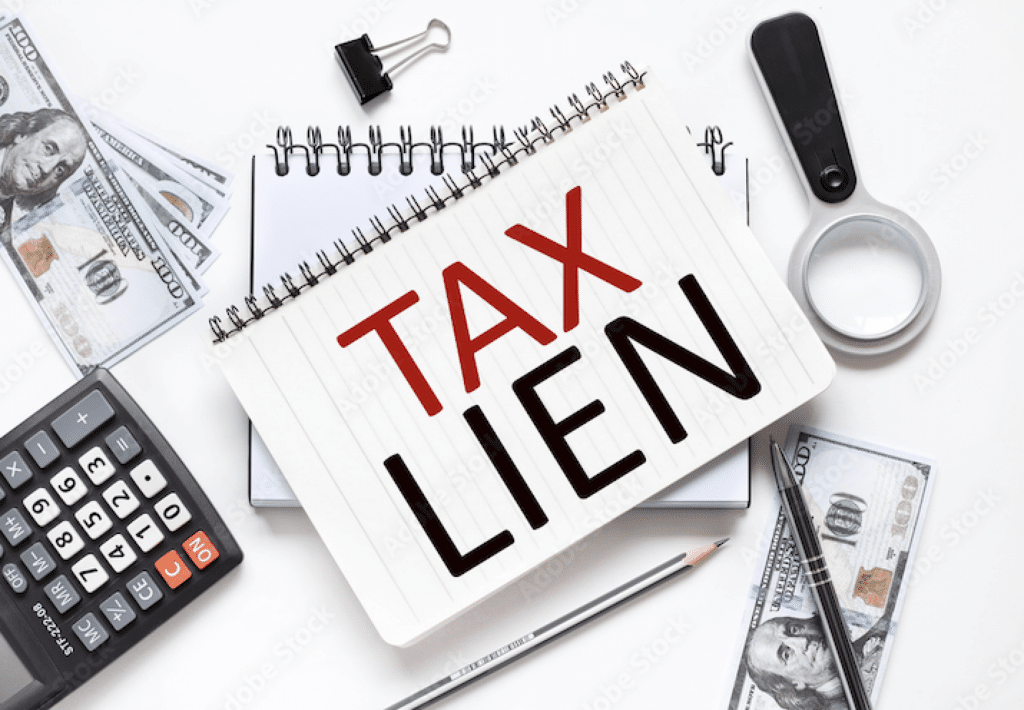
Notice of Tax Lien
Have you received an IRS Notice of Tax Lien? This is a notice stating a tax lien is about to or already has been placed on your property or other assets. Here is what it means and what you should do next.
What?
A tax lien is a legal claim against your property and/or other assets by a governmental authority to whom you owe taxes. A tax lien is assessed due to unpaid taxes owed to one or more government agencies to ensure the agency receives payment for the amount owed when you sell the property subject to the tax lien.
Who?
- IRS: A tax lien can be issued by the Internal Revenue Service (IRS) for unpaid federal taxes. Liens by the IRS protect the government’s right to collect outstanding tax debt. This type of tax lien does not force a sale of your assets, however, if you do sell your property, the lien ensures the IRS will receive a priority payment before any others. In this way, tax liens differ from a tax levy. An intent to levy usually indicates the government’s desire to take a more aggressive position by seizing assets to sell in an effort to raise cash to satisfy a tax debt.
- State Tax Authorities: State authorities may also issue tax liens to collect unpaid state tax including personal and business taxes owed.
- In the state of California, once a state tax lien is recorded, the lien becomes a public record.
- The lien is assigned to all California real and personal property currently owned or acquired in the future and remains in effect for at least 10 years with the possibility of extension.
- Local Governments: A tax lien can be assessed by local municipal governments for unpaid property or other local tax debt. Unpaid tax lien may be sold to outside investors or private individuals who then collect the money and interest directly from the delinquent taxpayer.
When?
A tax lien is typically an option by government agencies to collect unpaid taxes after several previous attempts. While several notices are typically provided to the debtor prior to a lien being assessed, notice requirements vary largely by jurisdiction.
Impact.
Tax Liens are public record and can have a negative effect on many aspects of daily life:
- Credit Score: A tax lien will appear on a credit report and show up as a derogatory mark in determining credibility. This could affect your ability to re-finance a home, or obtain a new line of credit, credit cards, auto loans, and mortgages. Should a new line of credit be granted, despite a present tax lien, lenders will typically assess a significantly higher rate of interest than that paid by consumers with better credit ratings.
- Background checks: Tax liens also show up on background checks for jobs. An employer may view the lien as a financial liability, or an apparent disqualifying issue based on the position being sought.
- Property Sales: A tax lien is an encumbrance on the title of a property. During property transactions, a home buyer will do a title search and an encumbrance may prevent the buyer from receiving a clean title prior to the completion of the sale.
- General Liens: Other types of liens may also be levied. For example, if a contractor who worked on your property was not paid for their work, they may file a lien against the property. This will make it harder for the seller to close on the sale of their property.
- Publicity: Tax liens, especially property tax liens, are often published in local newspapers for the public to view.
How to Remove a Tax Lien.
If you receive a tax lien, the lien should provide written notice containing the details pertaining to that lien. Some states and local authorities are required to provide notice before applying a tax lien against assets. Notice procedures and requirements vary widely by jurisdiction. Should a tax lien be filed against you, there are ways to satisfy the tax lien.
- Pay: The fastest way to remove a tax lien is to pay the full balance of the amount owed to the appropriate taxing authority. As a note, full payment is likely to include accrued interest, penalties, and fees.
- Offer in Compromise: Depending on how much tax is owed and your ability to pay, an Offer in Compromise the debt may be a possible option. Many taxpayers do not qualify for an Offer in Compromise. It is recommended to retain the services of an attorney or tax professional in order to evaluate your chances of an Offer in Compromise.
- Force Sale: In some circumstances, the IRS may be willing to withdraw their lien on your property or other assets to help facilitate your ability to sell or refinance the property without any encumbrances. They typically will offer this option in exchange for a promise to repay the tax debts once the sale or refinance is completed.
After a tax debt has been paid, you should double check with all taxing authorities to verify that all liens on assets have been successfully removed.
Next Steps – Get Help
For further questions regarding tax liens, you may contact the IRS Hotline at 1-800-829-1040.
For questions or assistance regarding a tax lien, please reach out to the qualified tax attorneys at RJS Law for a free consultation at either RJS LAW’s ’s website or by phone at 619-595-1655.
Written by Judith Jeremie
Sources:
• Understanding a Federal Tax Lien | Internal Revenue Service (irs.gov)
• What Is a Tax Lien? Definition & Impact on Credit – TheStreet

Leave a Reply